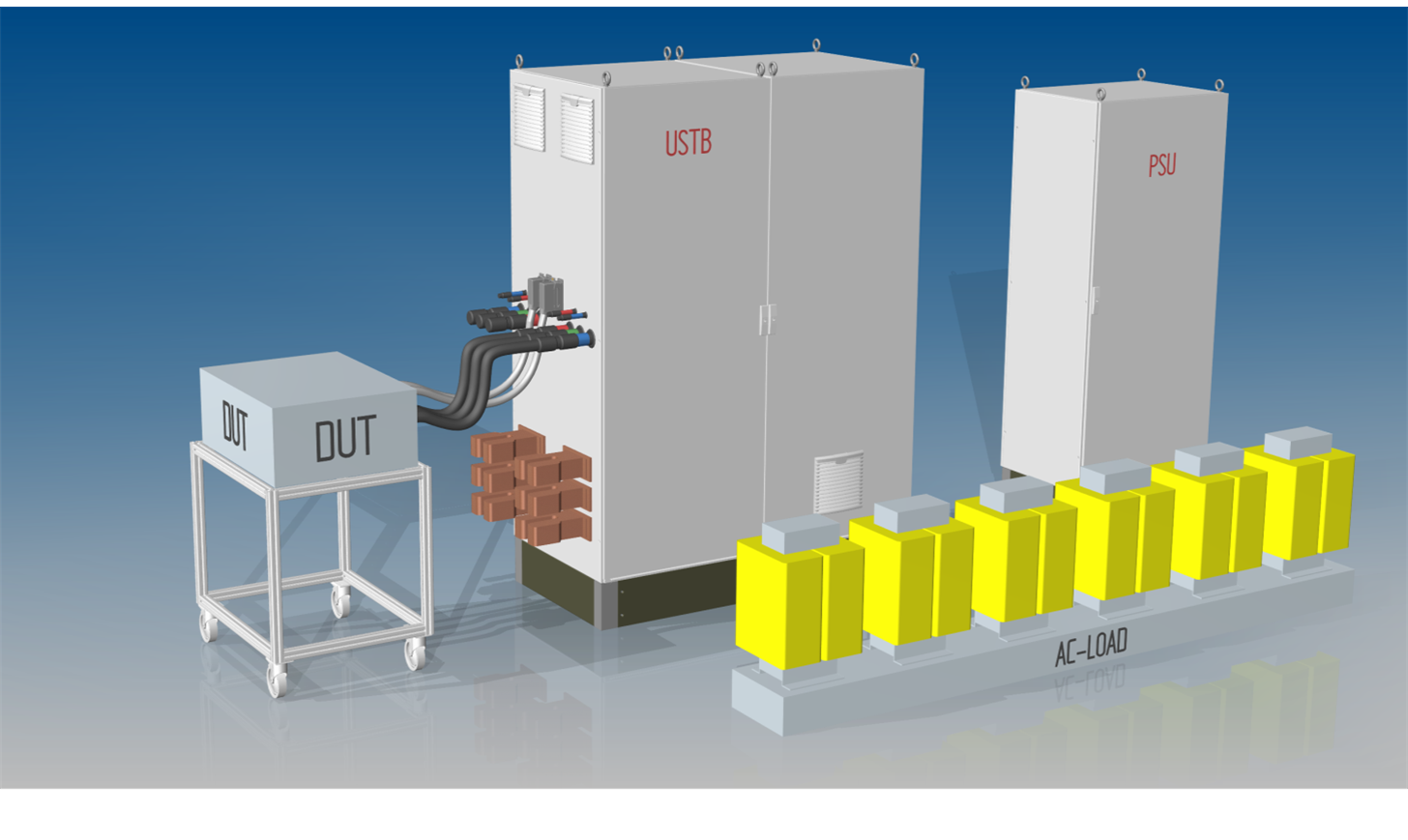Universal Stack Test Bench
The Universal Stack Test Bench (USTB) is a versatile end-of-line tester for DUTs (devices under test) which can be easily excanged. Every type of DUT has its own carrier, which is specifically designed for the different mechanical and electrical requirements. Primarily a DUT is a power electronic stack, but also dc-link capacitors or other customer specific devices are possible.
After the carrier is coupled to the test bench by pushing it in and the DUT is scanned, an automatic test sequence is performed.
The test bench can be operated by everyone who has a short briefing. The test sequence itself can be run unattended and the test result is indicated by a color light.
- Suitable for different DUTs
- Carrier based
- Up to 2000 A, 1500 V
- EOL test of DUT’s function and protection mechanisms
- Power test
- Test of customer specific functions
Test Modules
There are different test modules which can be run on the USTB, which range from general functionality testing to long-term tests and the verification of specific operation mechanisms.
Each test is autonomous and can be run several times, even with different parameter sets. The sequence with its different tests and specific parameters can be set up by a customer’s administrating engineer.
Of course AixControl offers to individually implement new test modules to match the customers's specific needs.
The following are some of the standard test modules run on every DUT:
DIELECTRIC TEST
The purpose of the dielectric test is to verify the correct insulation of the power stage by measuring the leakage current at high potential. All power connections (dc+, dc-, ac-outputs) are connected to a high dc potential. The driver board and the heatsink remain on ground potential. Leakage current is measured and compared to limits. The test is performed with bipolar voltages.
DRIVER CONSUMPTION TEST
The driver consumption test verifies the driver's current consumption in idle state and during PWM switching.
PULSE TEST
The pulse test can be run with three different operation modes:
- Functional-Switching (FSW) mode checks, if the semiconductors are switching in general.
- Over-Current-Protection (OCP) tests the over-current monitoring (“soft short circuit” can be checked).
- Dynamic-Short-Circuit-Protection (DSCP) mode observes the correct behavior of the driver stage in respect of a hard short circuit.
THERMAL CYCLING
With this test, two different features can be tested:
- Burn-In-Test (BIT) is suited for operating the DUT in different cycles and hence simulating real operational states. By checking the cooling temperature at the end of test the correct heat transfer of the semiconductors can be verified.
- During Over-Temperature-Protection test (OTP) a DUT is run on reduced cooling until the maximum permissible heat sink temperature is reached and the temperature protection circuit trips.


